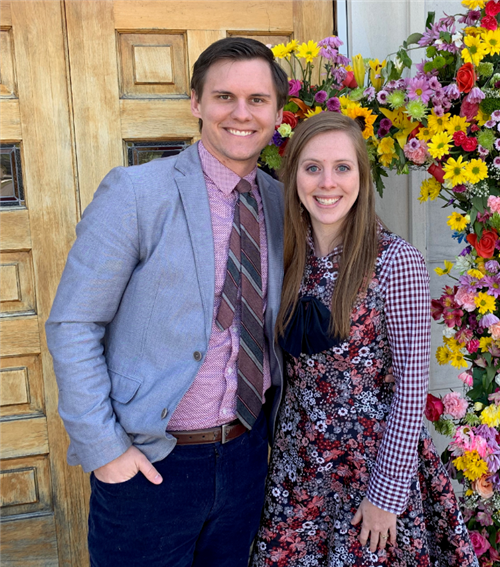Ministry Innovation Blog: Everyday Monasticism: How We're Finding Life in Benedict's Rule
March 4, 2021
By: Rev. Brian Tanck
When I was growing up, Dairy Queen was flanked by a little market on one side and Dean’s Dugout on the other. Dean sold collector’s cards. Pokemon, Magic: The Gathering, as well as baseball and football cards. He sold figurines and boards and books for playing Dungeons and Dragons and Warhammer. No one would describe the mix of sports paraphernalia and fantasy figurines as fashionable. Two long tables for tournaments or battles filled the middle of the store. I shopped there sometimes, but my memories of that place are of not belonging. I played Magic: The Gathering with my cousin. I bought a few packs of cards. But whatever was going on there, I didn’t get it.
My sense is that’s how most people understand monasteries. It’s like science-camp for Jesus freaks. Dean’s Dugout for theology nerds. A special-interest thing.
After all, we believe in Jesus. We follow Jesus. We go to church and we worship Jesus. But whatever is going on in those monasteries—the chanting, funny clothes, the prayers, the rules—we don’t get it. It’s fine for some people. If you’re into that sort of thing. But if you’re not into it, you’re not missing anything. People can get the full following-Jesus experience—can live a full and faithful life—while just tweaking the life they’ve always lived. The monastery is just for people into that sort of thing.
Which is an assumption we’re looking to change. First of all, because monasteries aren’t designed for people who like dressing funny and chanting in Latin. Here’s how Saint Benedict justifies the rule he set out for his communities:
- Let’s start to do now those things that will benefit us forever. This is why we want to establish a school for the Lord’s service. In drawing up its code of conduct, we hope to avoid anything harsh or burdensome. Even so, the good of everyone involved may compel us to establish some rules that seem strict. Know that it’s not for the sake of the rules, but rather it is to help heal our brokenness and to safeguard our love. Don’t be overwhelmed by fear and run away from the way that leads to salvation (The Rule of Saint Benedict: A Contemporary Paraphrase by Jonathan Wilson-Hartgrove).
Our experience in the church has been an increasing suspicion of rules, rituals, and institutions. These trends aren’t localized to the church. Our hyper-individualistic society prizes authenticity-to-self, maybe above all other goods. Rules, rituals, and institutions all represent constraints on individual freedom. They are the sort of constraints that make monasteries aberrant relics from another age. In fear of being unfaithful to ourselves, of being inauthentic, Christians are running from these constraints.
But Saint Benedict doesn’t believe his rule will suffocate individuals. He believes it will free them to experience deeper healing, love, and salvation than they otherwise would. It is a constraint, but it is meant to constrain sin. To guide us toward God.
Toward this end, our church has been developing a learning community based on principles borrowed from these monastic communities.
- The right rules are freeing. Like bumpers at a bowling alley, good rules keep us aimed in the right direction.
- Rituals enable authenticity. Any instrument, sport, or hobby really gets fun when we’ve mastered the basics enough to focus on the good stuff. Rituals do that.
- Well-designed institutions help individuals flourish. The problems we’re facing are too big to handle alone.
Built on this foundation, OptIN guides a group of (about) 20 congregants through 10 months of weekly meetings. Because we recruit whole family units when possible, this program has served as a resource for strengthening family ties. Because it is multi-generational, it has served to strengthen our congregation’s sense of family. But most significantly, as this multigenerational group practices skills, tells stories, experiments in service, and develops rules for their faith life, they find new life breaking out within the constraints.
About: Brian Tanck and his wife Micaiah have pastored the Scottsboro Cumberland Presbyterian Church for the past 5 years. During that time, God has kept them on their toes with their adopted daughter, and currently a pair of foster children. The OptIN program they’re piloting emerges from their lived experience that when communities are willing to fail toward God together, God shows up in incredible ways.

